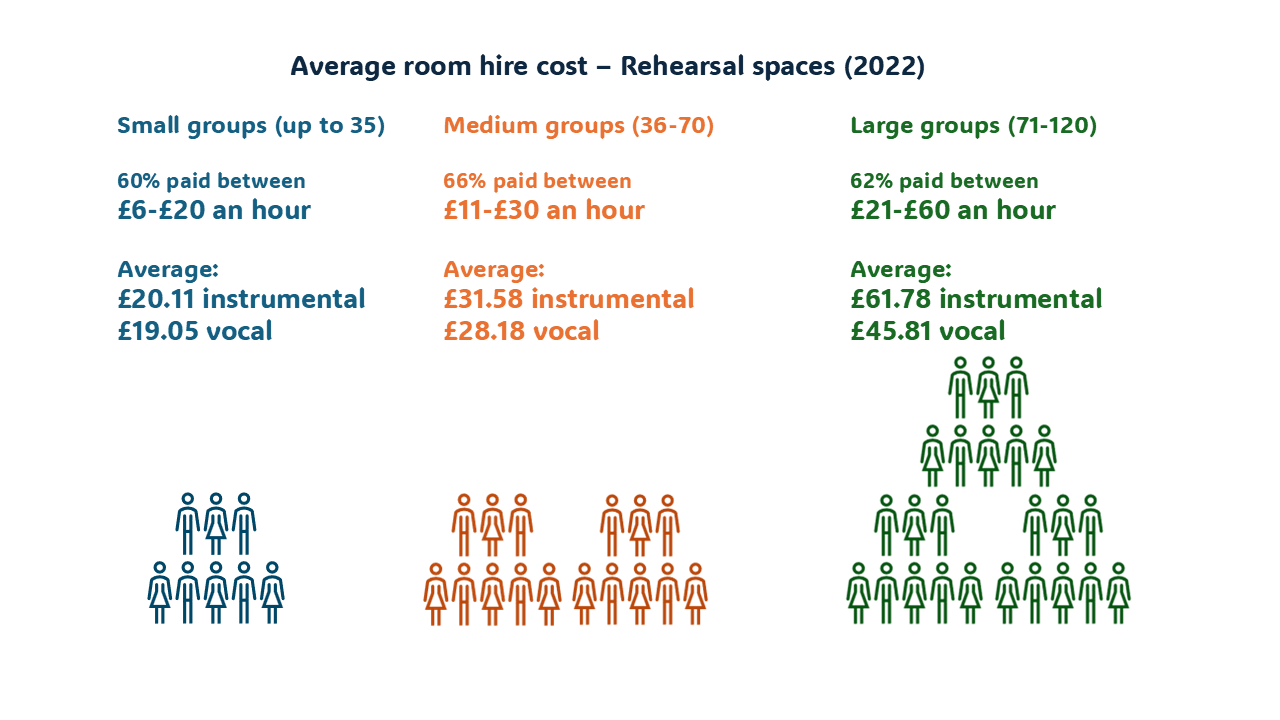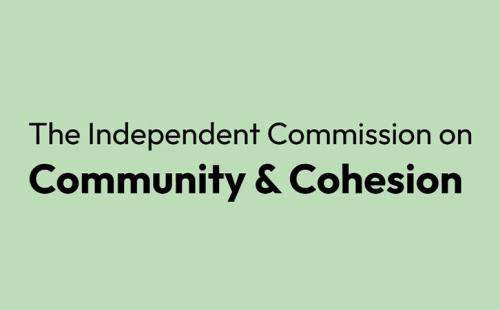Venues and Spaces
Finding a suitable and affordable local space as a venue for regular music activity has become ever harder. What can be done?
Making Music’s #MakeSpaceForMusic campaign provides a focus for actions on this growing issue.

Financial pressures have been mounting on all types of community spaces for ten years or more. The impact of Covid accentuated them, perhaps accelerating some to close down (e.g. social clubs, churches). Local authorities and councils have struggled financially, too, so closures or deterioration of spaces through neglect have also increased.
Halls are also often managed by volunteers, many of whom, exhausted by Covid, have given up. Potential additional regulation such as that in the UK government’s Terrorism draft bill could be the final straw for many.
Because of these pressures, another cause of the crisis now needs addressing urgently: the lack of understanding, by local policymakers in particular, of the importance and value of community spaces. They are not joining the dots between goals of regeneration and improving residents’ health and well-being, and this crucial local infrastructure.
The #MakeSpaceForMusic campaign is a focus for activity, with actions Making Music and music groups can take.
Contact local and national influencers
We’ve written a paper to brief those who influence decisions and policy making at all levels of government about our campaign. Levels of government could be parish/town councils, local authorities, devolved governments and UK government. Decision and policy makers could be elected representatives (MPs, members of devolved parliaments, councillors), candidates for those roles standing in elections, or the civil servants that work for councils and governments. You can send this paper on to those you are in contact with, or you can use the briefing to create and inform your own case, specific to your local area.
Contact local and national influencers
We’ve written a paper to brief those who influence decisions and policy making at all levels of government about our campaign. Levels of government could be parish/town councils, local authorities, devolved governments and UK government. Decision and policy makers could be elected representatives (MPs, members of devolved parliaments, councillors), candidates for those roles standing in elections, or the civil servants that work for councils and governments. You can send this paper on to those you are in contact with, or you can use the briefing to create and inform your own case, specific to your local area.
Connect with building owners
We've created a flyer that you can take to a space you already use or one you are looking to encourage hiring to community groups.
For building owners who want to hire to music groups, use our Find a Group tool to see who’s in your local area and you can contact them directly with an offer.
Pub is the Hub wrote a great article about how local pubs can support music-making - read it here.
In collaboration with Creative Lives, we have convened a Community Spaces Network that meets every six months to connect on issues that threaten all kinds of community spaces: church halls, community halls, schools with external letting, grassroots music venues, arts centres, culture and leisure trust owned spaces etc. Building owners and the organisations that represent them can join this network - email us at info@makingmusic.org.uk for more information.
We’re publishing case studies from groups who find that accessing the right space is a big challenge. Share these with the briefing paper and add your own story to make a stronger case for taking action.

Types of spaces
Top 3 types of spaces for music groups to meet regularly
- churches/ church halls (54%)
- schools/ other educational establishments (21%)
- community or village halls (15%)
These are used by 90% of groups. Others include: Local Authority owned space, cultural venue, private club/hall (e.g. social club), residences (e.g. private home, care home)
(Data from Making Music Big Survey of members, October 2022)

Hire costs (2022)
Small groups (up to 35 people)
- 60% paid between £6-£20 an hour
- Average - £20.11 instrumental, £19.05 vocal
Medium groups (36-70 people)
- 66% paid £11-£30 an hour
- Average - £31.58 instrumental, £28.18 vocal
Large groups (71-120 people)
- 62% paid £21-£60 an hour
- Average - £61.78 instrumental, £45.81 vocal
(Data from Making Music Big Survey of members, October 2022)
Watch our webinar
Watch back our webinar from February 2024, which was to raise awareness about the #MakeSpaceForMusic campaign and encourage our members to get involved. We talked about the key messages of the campaign, and how to talk to decision makers, elected representatives and election candidates about why this issue is so vital for music groups. We welcomed expert guest speaker Thorsten Dreyer, the Programme Manager for the Greater London Authority’s Culture and Community Spaces at Risk programme, which supports organisations at acute and immediate risk of losing the space they operate from.





